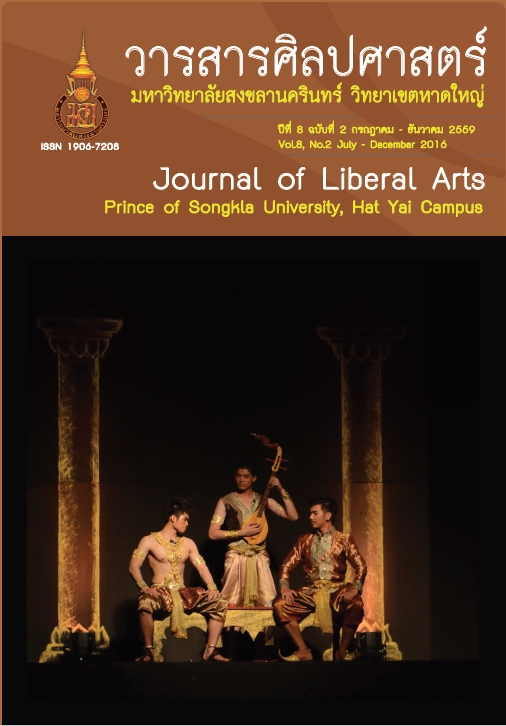A comparison of learning effectiveness in Chinese language between outbound and non-outbound Thai students
Keywords:
Foreign language learning, study in China, language skillsAbstract
A common belief among educators and language learners is that the best way to learn a language is to live in a country where the language is used (Tanaka and Ellis, 2003). This study aimed to investigate the effectiveness of study abroad on students’ Chinese proficiency. The two subject groups consisted of 22 third-year students at the Faculty of Liberal Arts, Prince of Songkla University, majoring in Chinese who went to further their study in China for one year and 18 students of the same major who chose to further their study in Thailand. The research instruments included a test of speaking proficiency and an HSK Chinese proficiency test measuring listening, reading, and writing abilities.
The findings reveal the following: 1) the speaking, listening, reading, and writing abilities of the subjects who studied in China increased significantly higher than those of the students who studied in Thailand. In addition, there was a significant relationship between the study abroad experience and the subjects’ gains in speaking and listening skills. There was a significantly negative correlation between the subjects’ initial language proficiency and gains in listening, reading and writing scores and HSK scores as a whole, indicating that students with low initial language proficiency benefit more from the study abroad experiences than those with higher initial proficiency. The study, therefore, suggests that, in order to improve their language proficiency, learners of a foreign language, particularly low-proficient ones, go and live in the country of the target language.
Downloads
Published
How to Cite
Issue
Section
License
Copyright (c) 2017 วารสารศิลปศาสตร์ มหาวิทยาลัยสงขลานครินทร์ วิทยาเขตหาดใหญ่ (Journal of Liberal Arts Prince of Songkla University Hat Yai)

This work is licensed under a Creative Commons Attribution-NonCommercial-NoDerivatives 4.0 International License.
The authors retain the copyright to their article but the Journal of Liberal Arts, Prince of Songkla University reserves the exclusive rights to first publication.






